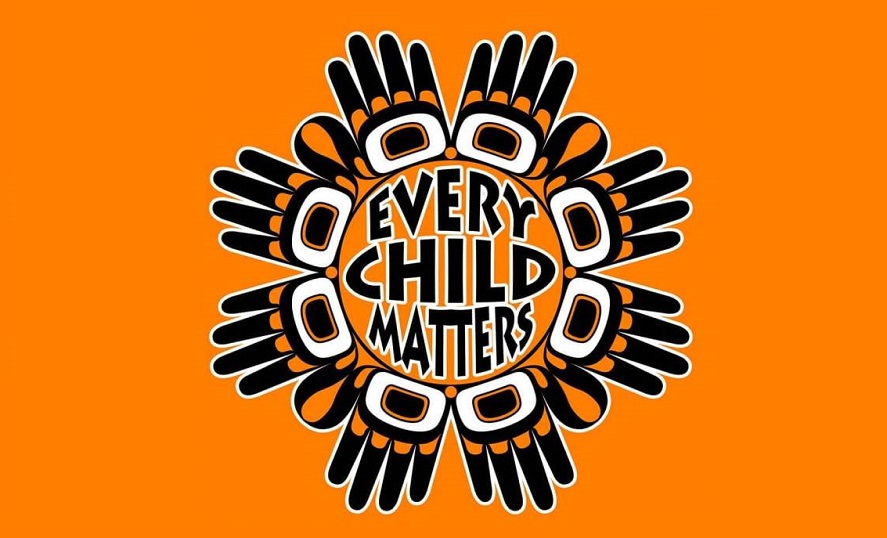Every year on September 30, we recognize and honour Orange Shirt Day in Canada as part of our ongoing commitment to cultural safety and humility and our pledge to ensure our actions are actively in resistance to Indigenous-specific racism.
Orange Shirt Day grew out of Phyllis Webstad’s story of having her shiny new orange shirt taken away on her first day at residential school. She was among the hundreds of thousands of Indigenous children who attended residential schools in Canada between the late 1800s and 1996, who must now live with the devastating and lasting effects.
While wearing orange on September 30 reminds us of the ongoing impacts of residential schools, it’s also become a symbol of hope, ongoing healing and reconciliation. It reminds us that “Every Child Matters” and honours the experience of Indigenous Peoples.
Here are 3 Ways You Can Show Your Support for Orange Shirt Day
Learn the Origins of Orange Shirt Day and Share its Story
Take some time to read about Orange Shirt Day and share its story with your friends and family. Orange Shirt Day has become an opportunity to keep the discussion about the history of residential schools happening annually.
- Visit the Orange Shirt Society’s website for information and resources to support your learning journey.
- Read the story of Orange Shirt Day and how it began.
- Follow the Society on it social media sites: Facebook, Instagram, and X (formerly Twitter).
Get Involved and Take Action
Many communities commemorate Orange Shirt Day with events to honour Survivors of residential schools and those who never made it home. Look for one in your community:
- Visit the events page on the Orange Shirt Society’s website.
- Indigenous Tourism BC has an events page that lists Indigenous events open to the public across the province.
- Participate in Victoria’s Orange Shirt Day event – learn more here.
- The Canadian Football League’s BC Lions demonstrate their support of Truth and Reconciliation through an annual Orange Shirt Day game.
Or consider taking action by furthering your learning journey about residential schools.
- Watch a movie, read a book or listen to a podcast.
- As Orange Shirt Dayis also commemorated as National Truth and Reconciliation Day, visit the National Centre for Truth and Reconciliation website and take part in an education session with their Daily Lunch and Learns during the week leading up to September 30.
- The University of British Columbia’s Indian Residential School History and Dialogue Centre also has many resources to draw from.
Wear orange on September 30
The orange shirt is a symbol of the stripping away of culture, freedom and self-esteem experienced by Indigenous children over generations. Show your support and commitment to cultural safety and humility by wearing orange on September 30.
While many stores now sell orange shirts, it’s recommended to take time to ensure the items are authentic, and that proceeds will go toward Indigenous artists or businesses. Or make your purchase directly from an Indigenous vendor by searching online for Indigenous-owned businesses.
If you’d like to know more about HQBC’s commitment to addressing Indigenous-specific racism and discrimination, read our statement.


